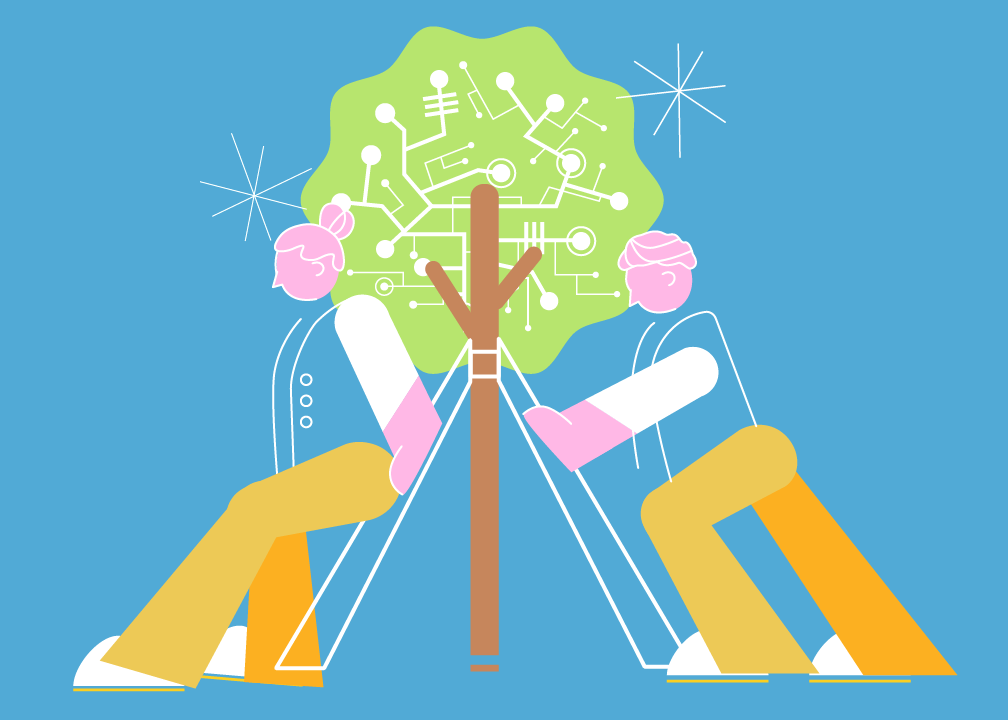
The critical role of humanities and social sciences in a technological world
By Josie Simon, August 29 2023—
Imagine a world where technology has advanced beyond our wildest dreams, where computers can simulate human thought and machines can self-learn without human intervention. In this world, humanities and social science degrees are not only relevant but necessary for tech innovation. As artificial intelligence (AI), robotics, information technology (IT) and virtual reality (VR) continue to evolve, integrating expertise in these fields with big tech will be critical in ensuring that technology aligns with human values, priorities, social expectations and ethics.
The humanities and social sciences (HSS) instill critical thinking, creativity, and communication skills necessary for shaping tomorrow’s technology. These fields provide the insight and knowledge required to ensure that technology aligns with human values. For example, they play a vital role in addressing bias in machine learning algorithms, which can potentially lead to discriminatory outcomes. By recognizing and redressing these biases and providing ethical frameworks, humanities and social science disciplines pave the way for responsible and respectful data use in machine learning applications.
Emerging technologies such as VR and AI present unique ethical, moral, social and legal concerns that must be addressed. While VR has revolutionized healthcare, gaming, retail, education and tourism, it poses surveillance and propaganda challenges. Policymakers, technology experts, humanists and social scientists must collaborate to develop an ethical framework prioritizing user safety, empathy, education and creativity over profit and power.
Similarly, robotics raises ethical concerns that require cross-disciplinary collaboration. Experts in philosophy should work closely with robotics to establish and maintain ethical standards. Self-driving cars, for example, face moral dilemmas, like determining victim prioritization in accidents. Adopting a cross-disciplinary approach ensures that robots function efficiently while maintaining ethical standards for a fair and equitable future.
Balancing technological advances with social and environmental responsibility is necessary for prioritizing sustainability values. Integrating community values, cultural beliefs, and human behaviour into renewable energy design fosters innovative and sustainable solutions to address environmental issues. This interdisciplinary approach ensures that technology meets both scientific and sustainable criteria.
Humanities and social sciences also play a considerable role in developing healthcare technologies. HSS allows individuals to develop a comprehensive understanding of the world around them. These degrees often focus on issues of diversity and inclusivity, helping individuals become more aware of diverse cultures, histories and worldviews. This knowledge can be invaluable in developing healthcare technology, where it is essential to have a nuanced understanding of the interplay of sociodemographic factors and health. HSS experts must also help integrate patient consent with emerging healthcare technologies.
As we plan for a more equitable and sustainable future, it is important to remember that technology must serve humanity, not only in intellect but also in spirit. Integrating humanities and social sciences through cross-disciplinary collaboration with big tech is not just a pathway to progress but a necessity for ethical and responsible innovation.
Advanced technology alone is not enough. We must incorporate human values and morals to create a more inclusive world. The humanities and social sciences are necessary for understanding the intricacies of human experience and technology’s maximum potential in crafting a better future.
This article is a part of our Opinions section and does not necessarily reflect the views of the Gauntlet editorial board.
